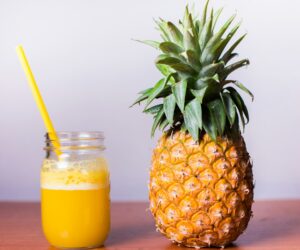Whether you’re looking to lose weight, gain muscle, or just improve your fitness, there are certain foods you need to eat in order to reach your fitness goals. Here are a few of them.
Breakfast
Taking in breakfast before exercising can be beneficial in several ways. It may increase alertness and improve concentration, and it can also boost performance and reduce muscle damage. It also helps regulate hunger.
Breakfast is a great way to start the day, and is an excellent source of vitamins, nutrients, and energy. It provides you with the right balance of macronutrients and fiber, which will keep you feeling full. It also helps you stay on track with your daily schedule. Erectile dysfunction is another condition that is treated with the drug Cenforce 100.
There are many types of breakfasts to choose from. Some of the more traditional options include eggs, cereal, and toast. However, there are plenty of non-traditional breakfast foods you can try, such as nut butter, yogurt, or fruit. You can also make homemade pancakes, which are a great source of carbohydrates.
Carbohydrates
Getting the right foods for exercise can make a big difference in your performance. Proper fuel can help you get the most out of your workout and also prepare you for the next one.
Carbohydrates are the body’s main energy source. They can be consumed either before or after exercise. They help to boost your energy levels, prevent fatigue, and also fuel your workout without breaking down your muscles.
There are two main types of carbohydrates. The first is simple carbohydrates, which are broken down into simple glucose. These sugars provide energy and calories without providing any vitamins or minerals.
The second type of carbohydrate is complex carbohydrates, which are made up of whole grains and vegetables. These foods are more digestible than simple sugars.
Aside from carbohydrates, athletes also need to consume protein. Protein helps repair muscle fibers damaged during exercise, and also helps to build new muscle tissue.
Protein
Choosing the right foods for exercise can make all the difference when it comes to muscle recovery. Eating a meal that is high in protein and carbohydrates will help replenish your body’s energy stores and help repair damaged muscle fibers.
The key to a successful meal is to eat small amounts at regular intervals throughout the day. This will ensure that you’re getting the proper amount of protein and carbohydrates at each meal.
The best way to get the most out of your meal is to choose foods that are high in protein and low in fat. Legumes are a great choice as they contain 15 grams of protein in just one cup. Other excellent choices include white beans, black beans, and chickpeas. These proteins are also low in saturated fats.
Healthy fats
Choosing healthy fats for exercise is important for a variety of reasons. These fats can boost mood and energy levels, help fight inflammation, and improve cognitive health. These fats also help the body absorb fat-soluble vitamins. Fat is also essential to proper cell growth and helps control blood pressure.
These fats are essential to good health, and they are found in fish, nuts, and seeds. They can also be found in cold-pressed plant oils. Some studies suggest that omega-3 fatty acids can protect against heart disease. They have also been shown to help lower the risk of depression.
The best sources of omega-3 fatty acids are fish oils and fish. However, most vegetable-sourced oils are high in omega-6 fats. In addition, diets high in omega-6 fats can actually slow recovery time and impair exercise performance.
Hydration
Keeping your body hydrated is an important part of any exercise routine. It helps you to avoid dehydration, which can affect your performance. Dehydration can also cause fatigue, mood swings, decreased motivation, and a reduced ability to focus. It can also negatively affect your body temperature regulation and heart rate.
To rehydrate, drink water at a steady rate. The amount of water you need to drink will depend on your activity and health. You should drink at least 45 oz of fluid for every pound of body weight deficit. You should also eat hydrating foods to help your body rehydrate.
Some foods are high in electrolytes. Fruits are a great source of potassium and magnesium. These minerals help to replenish the body’s fluids. Eating fruits also provides you with essential vitamins.
Eating a healthy breakfast is especially important on days when exercise is on your agenda. Skipping breakfast can leave you feeling lightheaded or lethargic while you’re working out.
Choosing the right kind of breakfast is crucial. Too many people rely on simple carbohydrates to start their day. A plain white bagel or doughnut won’t keep you feeling full for long.
In comparison, a fiber- and protein-rich breakfast may fend off hunger pangs for longer and provide the energy you need to keep your exercise going.
